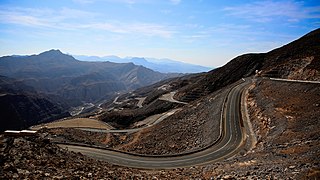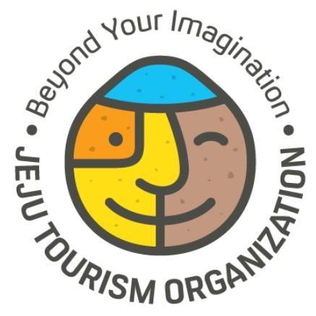
A tourist attraction is a place of interest that tourists visit, typically for its inherent or an exhibited natural or cultural value, historical significance, natural or built beauty, offering leisure and amusement.

Cultural tourism is a type of tourism in which the visitor's essential motivation is to learn, discover, experience and consume the cultural attractions and products offered by a tourist destination. These attractions and products relate to the intellectual, spiritual, and emotional features of a society that encompasses arts and architecture, historical and cultural heritage, culinary heritage, literature, music, creative industries as well as the living cultures with their lifestyles, value systems, beliefs and traditions.

Tourism in Indonesia is an important component of the Indonesian economy as well as a significant source of its foreign exchange revenues. Indonesia was ranked at 20th in the world tourist Industry in 2017, also ranked as the ninth-fastest growing tourist sector in the world, the third-fastest growing in Asia and fastest-growing in Southeast Asia. In 2018, Dénpasar, Jakarta and Batam are among of 10 cities in the world with fastest growth in tourism, 32.7, 29.2 and 23.3 percent respectively. The tourism sector ranked as the 4th largest among goods and services export sectors.

Tourism is an important sector for the Philippine economy. The travel and tourism industry contributed 8.6% to the country's GDP in 2023; this was lower than the 12.7% recorded in 2019 prior to the COVID-19 lockdowns. Coastal tourism, encompassing beach and diving activities, constitutes 25% of the Philippines' tourism revenue, serving as its primary income source in the sector. Popular destinations among tourists include Boracay, Palawan, Cebu and Siargao. While the Philippines has encountered political and social challenges that have affected its tourism industry, the country has also taken steps to address these issues. Over the past years, there have been efforts to improve political stability, enhance security measures, and promote social inclusivity, all of which contribute to creating a more favorable environment for tourism, such as the Boracay rehabilitation.
Incredible India is the name of an international tourism campaign launched by the Government of India in 2002 to promote tourism in India. The "Incredible India" title was officially branded and promoted since 2002. The exclamation mark forms the 'I' of India. The exclamation used creatively across several visuals complements the concept behind the word "Incredible".

Tourism in South Korea and its industry caters to both foreign and domestic tourists. In 2019, 17.5 million foreign tourists visited South Korea, making it the 20th most visited country in the world. Most non-Korean tourists come from East Asia and North America, such as Taiwan and the United States. The popularity of Korean popular culture, often known as the "Korean Wave", in countries around the world has significantly increased tourist arrivals.

Tourism in Dubai is a major part of the economy of Dubai. Dubai was the third most visited city in the world in 2023 with 17 million international visitors according to Euromonitor International. Dubai hosts more than 800 hotels with more than 150,000 rooms.

The Korea Tourism Organization is an organization of the Republic of Korea under the Ministry of Culture and Tourism. It is commissioned to promote the country's tourism industry.

Tourism in China is a growing industry that is becoming a significant part of the Chinese economy. The rate of tourism has expanded over the last few decades since the beginning of reform and opening-up. The emergence of a newly rich middle class and an easing of restrictions on movement by the Chinese authorities are both fueling this travel boom. China has become one of world's largest outbound tourist markets. According to Euromonitor International, economic growth and higher incomes in nearby Asian countries will help China to become the world's number one tourist destination by 2030.

The Pacific Asia Travel Association (PATA) is a membership association working to promote the responsible development of travel and tourism in the Asia Pacific region.
The European Travel Commission (ETC) is an international non-profit association representing the national tourism organisations (NTOs) in Europe and is based in Brussels. It was established in 1948 to promote Europe as a tourist destination to long-haul markets outside of Europe; initially the United States, then Canada, Latin America, and Asia-Pacific later on. The ETC in 2023 had 36 member NTOs and 12 associate members from the private industry. The association aims to raise awareness of the importance of tourism among national European authorities and the general public through sharing best practices and cooperation in market intelligence and promotion.

Tourism in Vietnam is a component of the modern Vietnamese economy. In 2019, Vietnam received 18 million international arrivals, up from 2.1 million in the year 2000. The Vietnam National Administration of Tourism is following a long-term plan to diversify the tourism industry, which brings foreign exchange into the country.

Czech Centres is an organization of the Ministry of Foreign Affairs of the Czech Republic consisting of offices in 26 countries throughout three continents. It was established for the promotion of the Czech history, culture, language, tourism and trade abroad. It is considered an active instrument of foreign policy of the Czech Republic through public diplomacy.

Tourism in Mongolia was extremely limited by the Socialist Government, but has been expanding following the 1990 Democratic Revolution in Mongolia in the wake of the collapse of the USSR and the Revolutions of 1989. Mongolia is a unique and relatively unexplored travel destination that offers a great combination of scenic natural features, a wide variety of untouched landscapes, nomadic life style and culture. Travel organizations in Mongolia date back to half a century ago, but the private sector-based tourism is barely twenty years old. Now Mongolia boasts 403 travel companies, 320 hotels, 647 resorts and tourist camps, all employing the graduates from over 56 educational establishments. Mongolia takes an active part in United Nations World Tourism Organization, of which it is a member party.
Founded in October 2008, 10 Magazine is an English language, "events-led" monthly magazine published in Seoul, South Korea. The content focuses on the month's events around the country and entertaining activities to experience while visiting or residing in Korea.

In Metro Manila, Philippines, tourism is a significant industry. In 2012, the city and the region welcomed 974,379 overnight visitors. Serving as the main gateway to the Philippines' numerous destinations, the city attracts mainly international tourists, with a total of 3,139,756 visitors in 2012. Global Blue ranks Manila as the eleventh 'Best Shopping Destination' in Asia. The city holds the tenth position in MasterCard's global top 20 fastest-growing cities for international visitors from 2009 to 2013.
Tourism in Ghana is regulated by the Ministry of Tourism, Arts & Culture. This ministry is responsible for the development and promotion of tourism related activities in Ghana.

The COVID-19 pandemic has impacted the tourism industry due to the resulting travel restrictions as well as slump in demand among travelers. The tourism industry has been massively affected by the spread of coronavirus, as many countries have introduced travel restrictions in an attempt to contain its spread. The United Nations World Tourism Organization estimated that global international tourist arrivals could have decreased by 58% to 78% in 2020, leading to a potential loss of US $0.9–1.2 trillion in international tourism receipts.

Tourism in the United Arab Emirates is an important part of the Emirati economy, and consists of domestic and international components. In 2023, the tourism sector contributed 220 billion dirham to the national gross domestic product (GDP), accounting for 12% of it.

The Jeju Tourism Organization is a public company associated with Jeju Special Self-Governing Province in the Republic of Korea. It is tasked with promoting Jeju Island's tourism industry domestically and internationally.















